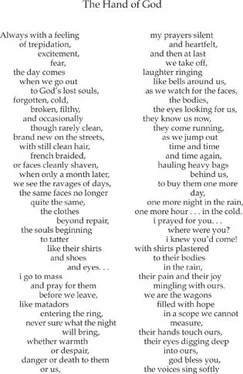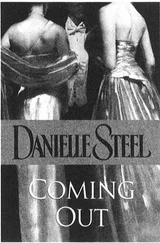Danielle Steel - Safe Harbour
Здесь есть возможность читать онлайн «Danielle Steel - Safe Harbour» весь текст электронной книги совершенно бесплатно (целиком полную версию без сокращений). В некоторых случаях можно слушать аудио, скачать через торрент в формате fb2 и присутствует краткое содержание. Год выпуска: 2004, ISBN: 2004, Издательство: Random House, Inc., Жанр: Старинная литература, на английском языке. Описание произведения, (предисловие) а так же отзывы посетителей доступны на портале библиотеки ЛибКат.
- Название:Safe Harbour
- Автор:
- Издательство:Random House, Inc.
- Жанр:
- Год:2004
- ISBN:9780440237624
- Рейтинг книги:4 / 5. Голосов: 1
-
Избранное:Добавить в избранное
- Отзывы:
-
Ваша оценка:
- 80
- 1
- 2
- 3
- 4
- 5
Safe Harbour: краткое содержание, описание и аннотация
Предлагаем к чтению аннотацию, описание, краткое содержание или предисловие (зависит от того, что написал сам автор книги «Safe Harbour»). Если вы не нашли необходимую информацию о книге — напишите в комментариях, мы постараемся отыскать её.
Safe Harbour — читать онлайн бесплатно полную книгу (весь текст) целиком
Ниже представлен текст книги, разбитый по страницам. Система сохранения места последней прочитанной страницы, позволяет с удобством читать онлайн бесплатно книгу «Safe Harbour», без необходимости каждый раз заново искать на чём Вы остановились. Поставьте закладку, и сможете в любой момент перейти на страницу, на которой закончили чтение.
Интервал:
Закладка:
She walked into the same lobby she'd seen the day before. It was a large open room hung with posters, and paint chipping off the walls. There was a long desk and a different receptionist than she'd seen. She was a middle-aged African American woman who was manning both the desk and the phones. She looked competent and pleasant, and had tightly braided salt-and-pepper hair, and she looked up expectantly at Ophélie. In spite of the simple clothes she'd worn, she looked well kept and beautifully groomed, and she looked out of place in the threadbare room. None of the furniture matched and it all seemed beaten up. It was easy to guess they'd gotten it at Goodwill, and there was a coffeemaker with styrofoam cups in the corner.
“May I help you?” the woman at the desk asked pleasantly.
“I have an appointment with Louise Anderson,” Ophélie said quietly. “I think she's the head of volunteers.” And with that, the woman at the desk smiled.
“That and the head of marketing, donations, ordering groceries, supplies, PR, and hiring new talent. We all wear a lot of hats around here.” It sounded interesting to Ophélie, as she walked around the room, looking at posters and literature, while she waited. She didn't have long to wait. Two minutes later, a young woman seemed to burst into the room. She had bright red hair like Pip's and wore it in two long braids down her back, one hanging over the other. She obviously had a huge mane of hair. She was wearing combat boots and jeans, and a lumberjack shirt, but in spite of it, she was obviously pretty, and looked utterly feminine. She had a lithe grace, like a dancer, and was small like Ophélie and Pip. But she exuded energy, and kindness, enthusiasm and power. She had a take-charge style about her that suggested confidence and ease.
“Miss Mackenzie?” she asked with a warm smile, as Ophélie stood up to greet her and nodded that she was. “Will you follow me?” She walked with a quick, sure step to a back office, with a bulletin board that covered an entire wall. There were bits of scrap paper, bulletins, announcements, messages from government agencies, photographs, and an endless list of projects and names. It was overwhelming just looking at all she presumably had on her plate. On the opposite wall were photographs of people at the Center, and her small desk and chair and two chairs for visitors, nearly filled the small, sunny room. Like her, the room was tiny, cheerful, chock full of information, and blatantly efficient.
“What brings you to us?” Louise Anderson asked, smiling warmly straight into Ophélie's eyes. She was clearly not the normal profile of their volunteers, who were usually college students, or grad students accruing hours toward a social work degree, or people who were somehow related to their field.
“I'd like to volunteer,” Ophélie said, feeling shy.
“We can sure use all the help we can get. What are you good at?” The question stumped her for a minute. She had no idea, and even less of what they needed from her. She felt totally out of her league. “Or maybe I should say what do you like to do?”
“I'm not sure. I have two kids.” She winced as she said it, but correcting it would have sounded pathetic, she thought, so she didn't. “I've been married for eighteen years…or was…” She was brave enough to say that at least. “I can drive, shop, clean, do laundry, I'm fairly good with kids, and dogs.” It sounded ridiculous even to her own ears, but she hadn't thought for years about what her real skills were. And it all sounded so foolish and limited now. “I was a biology major in college. And I know a fair amount about energy technology, which was my husband's field,” another useless bit of knowledge they wouldn't need, “and I have some experience with dealing with family members of people who have mental illness.” She thought of Chad. It was all she could think of as she looked into Louise Anderson's eyes.
“Are you going through a divorce at the moment?” She had picked up the reference to having been married, and the “was.”
Ophélie shook her head, trying to look normal, and not scared, but she was. It was intimidating being here and feeling so useless and unskilled. But the woman across the desk from her was gazing at her with openness and respect. She just needed to know more.
“My husband died a year ago,” she gulped nearly audibly, “and my son. I have an eleven-year-old daughter. And a lot of time on my hands.”
“I'm sorry about your son and your husband,” she said sincerely, and went on. “Your experience with mental illness could be very useful to you here. A lot of the people who come through here are mentally ill. It's just a simple fact of homelessness much of the time. If they're too sick, we try to refer them to the right agencies and clinics. But if they're relatively functional, we let them in. Most of the shelters have criteria that eliminate people who exhibit bizarre behavior, which makes many of the homeless population ineligible for the shelters. It's a pretty crazy rule, but it makes things easier for the shelters. We're a little soft on that here, but as a result, we see some pretty sick people.”
“What happens to them?” Ophélie asked, looking concerned. She liked this woman, and hoped she would get to know her better. She had a peaceful but powerful positive energy that seemed to fill the room. And her passion for what she did was contagious. Ophélie was excited about being there and the prospect of working for them, even as a volunteer.
“Most of our clients go back on the street after a night or two. The family units stay, but most of them move on to permanent shelters. We're not permanent. We're a temporary facility. We're a Band-Aid on the face of homelessness. We let them stay as long as we can, we try to find them referrals to agencies, or long-term shelters, or foster care for kids. We try to meet their needs in every way we can, clothe them, house them, get them medical assistance when they need it, apply for government benefits when that's appropriate. We're kind of like an emergency room. We give them lots of TLC and information, a bed, food, a hand to hold. We like it because we serve more people this way, but there are also a lot of problems we can't solve. It breaks your heart sometimes, but there's only so much we can do. We do what we can, and they move on.”
“It sounds like you're doing a lot as it is,” Ophélie said with eyes full of admiration.
“Not enough. This is a business that breaks your heart. You're emptying an ocean with a teacup, and every time you think you've made a difference, the ocean fills up again faster than you can look. The ones that kill me are the kids. They're in the same boat with everyone else, and more liable to drown, and it's not their fault. They're the victims in all this, but so are a lot of the adults.”
“Can the children stay with their parents?” Ophélie ached thinking about them. She couldn't even imagine Pip homeless on the streets at her age, and many of them were younger, or even born there. It was a tragedy of our age, but as she listened, Ophélie was glad she had come. It had been the right choice for her, and she was grateful to Blake for suggesting it. She was excited about coming to work at Wexler.
“The kids can only stay with their parents, or parent, as the case may be, if they're accepted into a longterm family shelter, or some kind of safe house, like for abused mothers and kids. They can't stay out on the street, the minute the cops see them they take them into protective services and foster them out. It's no life for a kid on the streets. A quarter of our population dies on the street every year, from weather, disease, accident, trauma, violence. A kid wouldn't survive half as long as an adult. They're better off in foster homes,” which seemed sad to Ophélie too. “Do you have any idea what hours you'd like to work? Days? Nights? Probably days, if you're a single mother with a kid in school.” The term “single mother” hit her like a punch in the solar plexus. She had never thought of herself that way, but she was now, much as she hated it.
Читать дальшеИнтервал:
Закладка:
Похожие книги на «Safe Harbour»
Представляем Вашему вниманию похожие книги на «Safe Harbour» списком для выбора. Мы отобрали схожую по названию и смыслу литературу в надежде предоставить читателям больше вариантов отыскать новые, интересные, ещё непрочитанные произведения.
Обсуждение, отзывы о книге «Safe Harbour» и просто собственные мнения читателей. Оставьте ваши комментарии, напишите, что Вы думаете о произведении, его смысле или главных героях. Укажите что конкретно понравилось, а что нет, и почему Вы так считаете.










